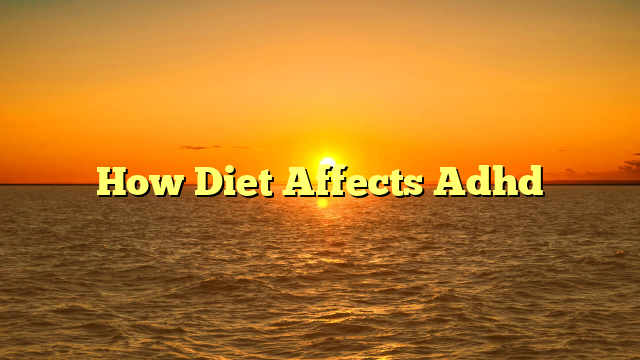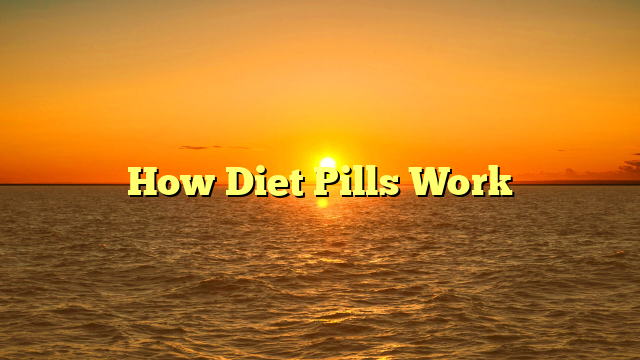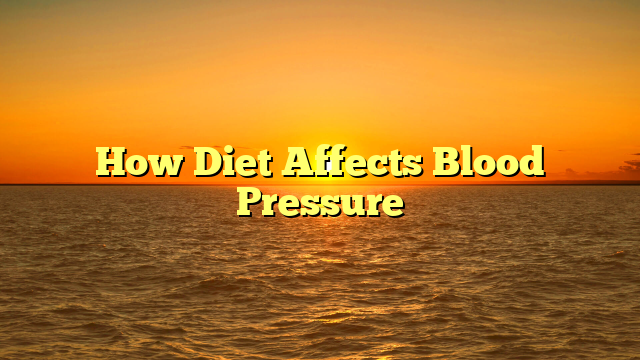How Diet Affects Adhd
Do you ever wonder how diet can impact ADHD? In this article, we explore the relationship between nutrition and Attention Deficit Hyperactivity Disorder, shedding light on the ways that certain foods can either worsen or alleviate ADHD symptoms. As we delve into the topic, you will gain a deeper understanding of how diet plays a crucial role in managing ADHD and discover practical tips to incorporate a healthier eating plan into your daily routine. So, let’s explore the fascinating connection between diet and ADHD and unlock the potential for a more balanced and fulfilling life.

I. Understanding ADHD
A. Definition of ADHD
ADHD, or Attention Deficit Hyperactivity Disorder, is a neurodevelopmental disorder that commonly appears during childhood and can persist into adulthood. It is characterized by symptoms such as inattention, impulsivity, and hyperactivity that significantly impact a person’s daily functioning and quality of life. Individuals with ADHD may struggle with staying focused, following instructions, organizing tasks, and maintaining attention to detail.
B. Characteristics of ADHD
There are three main types of ADHD: predominantly inattentive presentation, predominantly hyperactive-impulsive presentation, and combined presentation. The predominantly inattentive type is characterized by difficulties in sustaining attention, often leading to careless mistakes. The predominantly hyperactive-impulsive type involves excessive activity, restlessness, impulsivity, and difficulty with self-control. The combined type combines symptoms of both inattention and hyperactivity-impulsivity.
C. Prevalence of ADHD
ADHD is a prevalent condition, with estimates suggesting that around 5-10% of children worldwide and approximately 2-5% of adults meet the criteria for diagnosis. Boys tend to be diagnosed more frequently than girls, but this could partially be due to underdiagnosis and gender bias. The disorder can significantly impact academic performance, occupational functioning, and social relationships.
D. Impact of ADHD on daily life
Living with ADHD can present various challenges in different areas of life. In educational settings, difficulties with sustained attention, impulse control, and hyperactivity can interfere with learning and academic success. In the workplace, individuals with ADHD may struggle with organization, time management, and completing tasks on time. ADHD can also affect relationships, as it may be challenging to maintain focus during conversations or engage in appropriate social behaviors. Overall, ADHD can impact various aspects of daily life, leading to frustration, lower self-esteem, or feelings of inadequacy.
II. Role of Diet in ADHD
A. Importance of Nutrition for Brain Development
Nutrition plays a critical role in brain development, and the brain’s development during early childhood creates a foundation for cognitive and behavioral functioning throughout life. Adequate nutrition, including essential nutrients, vitamins, and minerals, is crucial for the brain’s normal growth and functioning. A well-balanced diet that supports brain health may contribute to optimal cognitive abilities, attention regulation, and overall mental well-being.
B. Link Between Diet and ADHD Symptoms
Emerging research suggests that diet can influence ADHD symptoms, although individual responses to dietary changes may vary. Some studies have found a potential correlation between certain dietary factors and ADHD symptoms. These factors include food coloring, sugar, food additives, allergenic foods, and nutritional deficiencies. While further research is needed in this area, modifying one’s diet may have the potential to alleviate or manage ADHD symptoms for some individuals.
C. Nutritional Deficiencies and ADHD
Certain nutritional deficiencies have been associated with ADHD or ADHD-like symptoms. For example, deficiencies in omega-3 fatty acids, iron, zinc, magnesium, vitamin B6, and vitamin D have been linked to impaired brain function and increased ADHD symptom severity. Addressing these deficiencies through dietary changes or supplementation may positively impact ADHD symptoms in some cases.
III. Foods to Limit or Avoid for ADHD
A. Artificial Food Coloring
Artificial food coloring, commonly found in candies, sodas, and processed foods, has been suggested to contribute to hyperactivity and inattention in some individuals with ADHD. While the exact mechanisms behind this link are not fully understood, some studies have shown that removing artificial food coloring from the diet may lead to a reduction in ADHD symptoms for certain individuals. Therefore, it may be helpful to limit or avoid foods with artificial food coloring.
B. Sugary and Processed Foods
Foods high in added sugars and processed carbohydrates can cause blood sugar spikes and subsequent crashes, affecting mood, energy levels, and attention regulation. Consuming excessive amounts of these foods may lead to increased hyperactivity and impulsivity in individuals with ADHD. Choosing whole foods and natural sources of sugar, such as fruits, can help stabilize blood sugar levels and promote overall better mental and physical health.
C. Food Additives and Preservatives
Certain food additives and preservatives, such as monosodium glutamate (MSG) and sodium benzoate, have been associated with increased hyperactivity and behavior problems in some children with ADHD. While more research is needed to establish a clear causative link, it may be beneficial to avoid or minimize consumption of processed foods containing these additives.
D. High-Fructose Corn Syrup
High-fructose corn syrup (HFCS), a widely used sweetener in many processed foods and beverages, has been linked to adverse health effects, including obesity, diabetes, and metabolic syndrome. While the direct impact of HFCS on ADHD symptoms is not well-established, limiting consumption of HFCS and opting for natural sweeteners, such as honey or maple syrup, may contribute to overall better health and well-being.
E. Allergenic Foods
Food allergies or sensitivities can potentially worsen ADHD symptoms in some individuals. For example, common allergens like gluten and dairy products have been associated with increased hyperactivity and inattention in a subset of individuals. It may be worth considering an elimination diet or consulting a healthcare professional to determine if certain foods are exacerbating ADHD symptoms.
IV. Specific Nutrients for ADHD Management
A. Omega-3 Fatty Acids
Omega-3 fatty acids, including eicosapentaenoic acid (EPA) and docosahexaenoic acid (DHA), are essential fats that play a crucial role in brain development and functioning. Research suggests that individuals with ADHD may have lower levels of omega-3 fatty acids. Supplementation with omega-3 fatty acids, derived from fish oil or algae, has shown promise in reducing ADHD symptoms, specifically hyperactivity and impulsivity.
B. Iron
Iron is necessary for the production of dopamine, a neurotransmitter involved in attention regulation and cognitive function. Low iron levels have been associated with increased ADHD symptom severity. Ensuring an adequate intake of iron-rich foods, such as lean meats, seafood, legumes, and leafy greens, may support optimal brain function and potentially alleviate ADHD symptoms.
C. Zinc
Zinc is essential for neurotransmitter function, including dopamine and serotonin, which play a role in mood regulation and cognitive processes. Studies have found a correlation between low zinc levels and more severe ADHD symptoms. Increasing dietary intake of zinc-rich foods like oysters, beef, pumpkin seeds, and spinach may be beneficial for individuals with ADHD.
D. Magnesium
Magnesium is involved in over 300 biochemical reactions in the body, including neurotransmitter synthesis and nerve function. Some research suggests that magnesium deficiency may contribute to ADHD symptomatology. Incorporating magnesium-rich foods, such as nuts, seeds, whole grains, and dark chocolate, into the diet may support brain health and potentially improve ADHD symptoms.
E. Vitamin B6
Vitamin B6 is involved in the production of neurotransmitters, including dopamine, serotonin, and norepinephrine, which are essential for regulating mood, attention, and impulse control. Low levels of vitamin B6 have been observed in some individuals with ADHD. Consuming foods rich in vitamin B6, such as bananas, avocados, chicken, and tuna, may help maintain proper neurotransmitter function and potentially alleviate ADHD symptoms.
F. Vitamin D
Vitamin D, often referred to as the sunshine vitamin, plays a crucial role in brain health and neurotransmitter regulation. Some studies have found an association between low vitamin D levels and increased ADHD symptom severity. Spending time outdoors and consuming vitamin D-rich foods, like fatty fish, fortified dairy products, and egg yolks, can contribute to maintaining adequate vitamin D levels and supporting overall brain function.
G. Probiotics
Emerging research suggests a potential link between gut health and ADHD symptoms. Probiotics, which are beneficial bacteria that support a healthy gut microbiome, may have a positive impact on mental health and cognitive function. Although more studies are needed in this area, incorporating probiotic-rich foods, such as yogurt, sauerkraut, and kimchi, or taking probiotic supplements may promote a healthy gut-brain axis and potentially benefit individuals with ADHD.

V. Dietary Recommendations for ADHD
A. Whole Foods and Balanced Meals
Opting for whole, unprocessed foods is a cornerstone of a nutritious diet for individuals with ADHD. Whole foods provide essential nutrients and are less likely to contain artificial colors, additives, and preservatives that may exacerbate ADHD symptoms. Consuming a well-balanced meal that includes a variety of fruits, vegetables, whole grains, lean proteins, and healthy fats can support overall brain health and minimize potential dietary triggers.
B. High-Fiber Foods and Slow Digestion
Foods high in fiber contribute to stable blood sugar levels, sustained energy, and improved digestion. Selecting high-fiber options such as whole grains, legumes, fruits, and vegetables can help prevent blood sugar spikes and maintain focus throughout the day. Additionally, slower digestion can result in a gradual release of energy, reducing the likelihood of hyperactivity and impulsivity.
C. Protein-Rich Foods
Protein is essential for neurotransmitter synthesis and provides a steady supply of amino acids, the building blocks of brain chemicals. Including protein-rich foods such as lean meats, fish, poultry, eggs, beans, and nuts in meals and snacks can support optimal brain function and may help manage ADHD symptoms.
D. Low-Glycemic Index Foods
The glycemic index (GI) ranks foods based on their impact on blood sugar levels. Choosing low-GI foods, such as whole grains, legumes, non-starchy vegetables, and certain fruits, can help maintain more stable blood sugar throughout the day. This can contribute to improved attention and sustained energy levels in individuals with ADHD.
E. Healthy Fats
Including healthy fats in the diet is essential for brain health and optimal cognitive function. Foods rich in omega-3 fatty acids, such as fatty fish (salmon, mackerel), walnuts, chia seeds, and flaxseeds, can provide the necessary nutrients for brain development and potentially alleviate ADHD symptoms. Additionally, incorporating monounsaturated fats found in avocados, olive oil, and nuts may support overall brain health.
F. Antioxidant-Rich Foods
Antioxidants help protect the brain from oxidative stress and inflammation, which may contribute to ADHD symptoms. Consuming foods rich in antioxidants, such as berries, leafy greens, cruciferous vegetables, and dark chocolate, can support brain health and potentially mitigate ADHD symptoms.
G. Water and Hydration
Proper hydration is essential for cognitive function, mood regulation, and overall well-being. Dehydration can exacerbate symptoms of inattention and fatigue. Encouraging adequate water intake throughout the day can help optimize brain function and support individuals with ADHD.
VI. Supplements and ADHD
A. Importance of Consulting a Healthcare Professional
When considering supplements for ADHD management, it is crucial to consult with a healthcare professional, such as a primary care physician or a registered dietitian. They can assess your specific nutritional needs, provide guidance, and ensure safe and effective supplementation.
B. Omega-3 Fatty Acid Supplements
In cases where dietary intake of omega-3 fatty acids is insufficient, supplementation may be recommended. Omega-3 fatty acid supplements, typically derived from fish oil or algae, provide EPA and DHA. These supplements have shown promise in reducing ADHD symptoms, particularly hyperactivity and impulsivity. However, dosages should be determined by a healthcare professional.
C. Iron Supplements
If an individual with ADHD has been diagnosed with iron deficiency or low iron levels, iron supplements may be prescribed to address the deficiency and potentially improve ADHD symptoms. Iron supplementation should be done under the guidance of a healthcare professional, as excessive iron intake can be harmful.
D. Zinc Supplements
Supplementation with zinc may be considered for individuals with ADHD and low zinc levels. Zinc supplements have been shown to have a positive impact on ADHD symptoms in some research studies. As with any supplementation, it is important to consult with a healthcare professional to determine appropriate dosages and duration.
E. Magnesium Supplements
Magnesium supplementation may be beneficial for individuals with ADHD and low magnesium levels. Magnesium supplements can help support neurotransmitter regulation and overall brain function. Working with a healthcare professional is important to determine the appropriate dosage and ensure safety.
F. B-Vitamin Complex Supplements
B-vitamins, including vitamin B6, B9 (folate), and B12, are involved in neurotransmitter synthesis and brain health. Taking a B-vitamin complex supplement may support optimal brain function and potentially improve ADHD symptoms. However, dosages and specific B-vitamin requirements should be discussed with a healthcare professional.

VII. Alternative Diets and ADHD
A. Elimination Diets
Elimination diets involve removing specific foods or groups of foods from the diet for a period of time to identify potential triggers for ADHD symptoms. This approach aims to identify food sensitivities or intolerances that may exacerbate ADHD symptoms. Working with a healthcare professional and following an elimination diet under their guidance may help identify individual dietary triggers.
B. Feingold Diet
The Feingold Diet is an elimination diet that involves removing certain food additives, such as artificial colors, flavors, and preservatives, from the diet. This diet hypothesizes that these additives can worsen ADHD symptoms in some individuals. While some individuals may find symptom improvement following the Feingold Diet, further research is needed to establish its effectiveness.
C. Gluten-Free Diet
Some individuals with ADHD may have sensitivities or intolerances to gluten, a protein found in wheat, barley, and rye. A gluten-free diet involves eliminating gluten-containing grains and opting for gluten-free alternatives. While there is limited scientific evidence supporting a direct link between gluten and ADHD, some individuals may find symptom relief by adhering to a gluten-free diet.
D. Mediterranean Diet
The Mediterranean Diet emphasizes whole, unprocessed foods, including fruits, vegetables, whole grains, legumes, lean proteins, and healthy fats. Research suggests that the Mediterranean Diet may have a positive impact on ADHD symptoms, as it provides essential nutrients and supports overall brain health. Following a well-rounded Mediterranean Diet may be a beneficial dietary approach for individuals with ADHD.
E. DASH Diet
The DASH (Dietary Approaches to Stop Hypertension) Diet focuses on consuming foods low in sodium and rich in nutrients like potassium, calcium, and magnesium. While the primary goal of the DASH Diet is to manage and prevent high blood pressure, some studies have suggested a potential positive effect on ADHD symptoms as well. This diet encourages the consumption of whole grains, lean protein, fruits, vegetables, and low-fat dairy products, which can contribute to overall brain health.
VIII. Additional Lifestyle Factors for ADHD Management
A. Regular Physical Activity
Engaging in regular physical activity has numerous benefits for individuals with ADHD. Exercise can help reduce hyperactivity, improve attention span, boost mood, and enhance overall cognitive function. Incorporating activities such as walking, biking, swimming, or team sports into daily routines can positively impact ADHD symptoms.
B. Adequate Sleep
Getting sufficient and quality sleep is crucial for overall well-being and optimal cognitive functioning. Lack of sleep can negatively impact attention, decision-making, and impulse control, exacerbating ADHD symptoms. Establishing consistent sleep routines, creating a calming sleep environment, and practicing good sleep hygiene can help individuals with ADHD achieve restful and restorative sleep.
C. Stress Management Techniques
Stress can worsen ADHD symptoms, so implementing stress management techniques is important. Techniques such as mindfulness meditation, deep breathing exercises, yoga, and engaging in hobbies or activities that promote relaxation can help reduce stress levels and increase resilience to stressors.
D. Limiting Screen Time
Excessive screen time, including television, video games, and electronic devices, can interfere with attention and overall mental well-being in individuals with ADHD. Setting limits on screen time and encouraging alternative activities, such as outdoor play, creative pursuits, or engaging in social interactions, can promote healthier habits and better ADHD management.
E. Supportive and Structured Environment
Creating a supportive and structured environment is beneficial for individuals with ADHD. Establishing routines, providing visual cues, breaking tasks into manageable steps, and offering positive reinforcement can help individuals with ADHD stay organized, focused, and motivated. It is important to communicate openly and empathetically, understanding the challenges and individual needs of individuals with ADHD.
IX. Research Findings and Controversies
A. Scientific Studies on Diet and ADHD
Numerous scientific studies have explored the potential relationship between diet and ADHD symptoms. While some studies suggest that certain dietary factors may influence ADHD symptoms, others have found mixed or inconclusive results. Research in this field is ongoing, and it is important to interpret the findings cautiously.
B. Conflicting Results and Interpretations
The relationship between diet and ADHD is complex, and conflicting results in studies can make it challenging to draw definitive conclusions. Factors such as variations in study design, participant characteristics, measurement methods, and individual responses to dietary changes can contribute to divergent findings. More research, including large-scale and long-term studies, is needed to provide clearer insights.
C. The Role of Placebo Effect
The placebo effect, where individuals experience improvements in symptoms due to belief in the treatment, may contribute to reported benefits of diet changes in ADHD management. It is essential to consider the potential influence of the placebo effect and to conduct well-designed studies with appropriate control groups to accurately evaluate the impact of diet on ADHD symptoms.
D. Long-Term Effects and Sustainability
While short-term effects of dietary changes on ADHD symptoms may be observed in some individuals, the long-term effects and sustainability of such changes are not well-understood. It is important to consider the feasibility and practicality of implementing dietary modifications and their long-term adherence. Collaborating with healthcare professionals can help individuals develop realistic and sustainable dietary strategies for managing ADHD symptoms.
X. Conclusion
A. Importance of Individualized Approach
Managing ADHD requires an individualized approach, as the condition presents itself differently in each person. What works for one individual may not work for another, making it crucial to tailor interventions, including dietary and lifestyle changes, to the specific needs of each person with ADHD.
B. Integrating Dietary Changes
While research on the impact of diet on ADHD symptoms is still evolving, there is evidence to suggest that certain dietary modifications may benefit some individuals. Considering the potential link between diet and ADHD, integrating healthier dietary choices and minimizing consumption of potential triggers, such as artificial food coloring and processed foods, can be a positive step towards supporting overall brain health.
C. Collaboration with Healthcare Professionals
When considering dietary changes or supplements for managing ADHD, collaboration with healthcare professionals is essential. Consulting a primary care physician or a registered dietitian can help assess nutritional needs, identify potential deficiencies, guide dietary modifications, and ensure safe and effective supplementation.
D. Potential Benefits for ADHD Management
While dietary changes alone may not be a cure for ADHD, they may complement other evidence-based treatment strategies, such as medication and therapy. Modifying the diet to include nutrient-rich foods, addressing nutritional deficiencies, and minimizing potential dietary triggers might contribute to better overall well-being and improved ADHD symptom management for some individuals. It is crucial to remember that each person’s journey with ADHD is unique, and a multidimensional approach is often necessary for optimal results.








